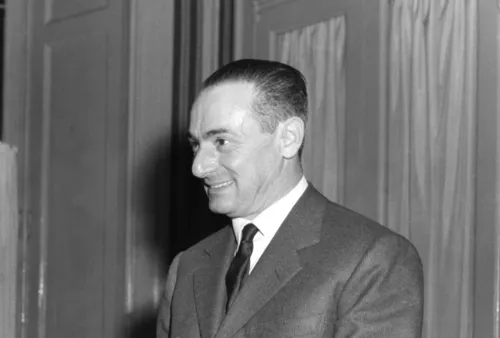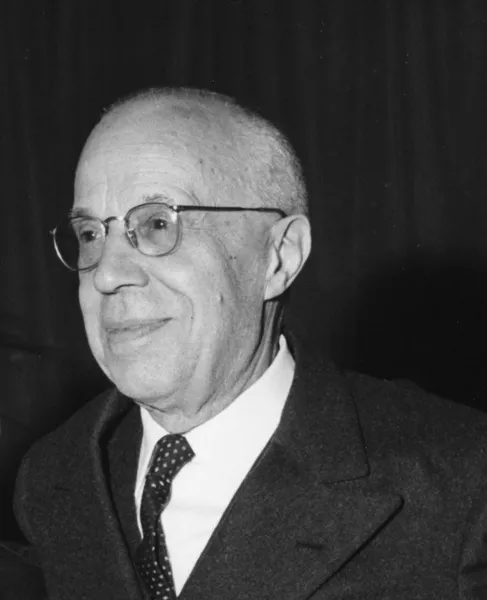
eBook - ePub
Education and Training for the Oil and Gas Industry: Case Studies in Partnership and Collaboration
Phil Andrews, Jim Playfoot
This is a test
Condividi libro
- 144 pagine
- English
- ePUB (disponibile sull'app)
- Disponibile su iOS e Android
eBook - ePub
Education and Training for the Oil and Gas Industry: Case Studies in Partnership and Collaboration
Phil Andrews, Jim Playfoot
Dettagli del libro
Anteprima del libro
Indice dei contenuti
Citazioni
Informazioni sul libro
Volume 1: Education and Training for the Oil and Gas Industry: Case Studies in Partnership and Collaboration highlights, for the first time, 8 powerful case studies in which universities, colleges and training providers are working with oil companies to produce capable, competent people.
This essential companion in our series illustrates not only the carefully researched details of the partnerships and collaborative activities, but also offers commentary on each of the cases from Getenergy's decade of experience in uniting universities, colleges, training providers and the upstream oil and gas industry on a global basis.
- Edited by Getenergy's Executive Team which—for more than a decade—has uniquely specialized in mapping and connecting the world of academia and learning with the upstream oil and gas industry through events and workshops around the globe.
- Detailed research into the key facts surrounding each case with analysis to enable readers to quickly and effectively extract the lessons and apply to a variety of challenges in building oil/gas workforce capacity.
- Highlights the business lessons for universities, colleges and training providers from collaborative working to support skills projects for major companies where demand is greatest.
- Includes full colour images and partnership diagrams' to underscore key concepts
- Offers a unified and universal case study rating mechanism in which readers can participate on-line to be part of this important and varied community.
Domande frequenti
Come faccio ad annullare l'abbonamento?
È semplicissimo: basta accedere alla sezione Account nelle Impostazioni e cliccare su "Annulla abbonamento". Dopo la cancellazione, l'abbonamento rimarrà attivo per il periodo rimanente già pagato. Per maggiori informazioni, clicca qui
È possibile scaricare libri? Se sì, come?
Al momento è possibile scaricare tramite l'app tutti i nostri libri ePub mobile-friendly. Anche la maggior parte dei nostri PDF è scaricabile e stiamo lavorando per rendere disponibile quanto prima il download di tutti gli altri file. Per maggiori informazioni, clicca qui
Che differenza c'è tra i piani?
Entrambi i piani ti danno accesso illimitato alla libreria e a tutte le funzionalità di Perlego. Le uniche differenze sono il prezzo e il periodo di abbonamento: con il piano annuale risparmierai circa il 30% rispetto a 12 rate con quello mensile.
Cos'è Perlego?
Perlego è un servizio di abbonamento a testi accademici, che ti permette di accedere a un'intera libreria online a un prezzo inferiore rispetto a quello che pagheresti per acquistare un singolo libro al mese. Con oltre 1 milione di testi suddivisi in più di 1.000 categorie, troverai sicuramente ciò che fa per te! Per maggiori informazioni, clicca qui.
Perlego supporta la sintesi vocale?
Cerca l'icona Sintesi vocale nel prossimo libro che leggerai per verificare se è possibile riprodurre l'audio. Questo strumento permette di leggere il testo a voce alta, evidenziandolo man mano che la lettura procede. Puoi aumentare o diminuire la velocità della sintesi vocale, oppure sospendere la riproduzione. Per maggiori informazioni, clicca qui.
Education and Training for the Oil and Gas Industry: Case Studies in Partnership and Collaboration è disponibile online in formato PDF/ePub?
Sì, puoi accedere a Education and Training for the Oil and Gas Industry: Case Studies in Partnership and Collaboration di Phil Andrews, Jim Playfoot in formato PDF e/o ePub, così come ad altri libri molto apprezzati nelle sezioni relative a Technik & Maschinenbau e Fossile Brennstoffe. Scopri oltre 1 milione di libri disponibili nel nostro catalogo.
Informazioni
Argomento
Technik & MaschinenbauCategoria
Fossile BrennstoffeCase Study 1
ENI, Mattei and Boldrini
A Radical Response to the Challenges of Developing International Energy Expertise
Abstract
This case study considers the establishment of the ENI Graduate School for the Study of Hydrocarbons in 1957 under the guidance of Enrico Mattei and Marcello Boldrini. The Graduate School was set up to provide education and development to the next generation of energy leaders and, crucially, was open to candidates from overseas as well as those from within Italy. The School was radical as it embraced a multi-disciplinary approach to the development of its students and, within this context, challenged the pervading models of operation that had developed within the industry over previous decades. Many of the graduates of the School went on to perform critical roles within the energy industry of their native countries with some leading the growth of national oil companies within emergent energy nations. Mattei's vision was to both support the development of individuals who could free their country from the grip of the international oil companies and to ensure that those individuals had strong and positive connections to ENI so that positive partnerships would emerge over time. This case study considers how Mattei and Boldrini achieved their vision, the level of success they achieved and the legacy they left behind.
Keywords
Education as cultural diplomacy; ENI; Enrico Mattei; Graduate School for the Study of Hydrocarbons; Marcello BoldriniThis case study has been written by Elisabetta Bini, Research Fellow, University of Trieste.
The Motivation
Between the second half of the 1950s and the late 1960s, as oil producers emerged as important international actors, the national oil company of Italy—Ente Nazionale Idrocarburi (ENI)—and its charismatic leader Enrico Mattei recognised the emergent challenges around developing energy resources across the world and supporting this development through education.
As a company that lacked the power, influence and resources enjoyed by international oil firms (which were the dominant force in the energy industry globally), ENI needed to find a way to build relations with the new elites in charge of ruling their countries after the achievement of national independence, in order to establish long-term connections and secure an international future for ENI.
At the same time ENI—and Mattei in particular—recognised the right of oil-producing countries to control their own oil and gas activities and embraced the idea that those who would be responsible for the energy industry needed to be supported to become the future leaders and practitioners in their own countries. In this way, the growth of the energy industry could contribute to decolonising these nations and could support a transition to economic and political independence.
Mattei saw ENI as having an important role to play in transforming the relationship between Western Europe/the US and oil producers and was interested


in finding a way of building the knowledge, capacity and capability of African, Asian, Latin American and Middle Eastern students.
ENI and Mattei were also looking for a mechanism by which the rules of the international oil market could be redefined by balancing oil-producing and oil-consuming countries around a common interest: to challenge the power of the oil cartel and empower emergent nations to take control of their own energy industries.
The Context
ENI started life in 1926 when the Italian government established the Azienda Generale Italiana Petroli (AGIP) as a state-owned company with the aim of pursuing petroleum exploration, refining and distribution in Italy and the colonies, as well as Romania and Albania, in order to achieve the country’s independence from the import of coal and oil from abroad. During World War II, most of AGIP’s refineries, pipelines and drilling equipment were either destroyed or heavily damaged, while its tanker fleet was virtually eliminated. With the landing of the Allies in Sicily in the Summer of 1943 and the division of Italy in two separate parts, the country’s provisional government, with the support of the US, Great Britain and the international oil companies, promoted the liquidation of AGIP.1
However, thanks to the role of the Centre-Left Christian Democrats, as the war was coming to an end in Northern Italy, Mattei was nominated as Special Administrator of AGIP Alta Italia, with the task of supervising the company’s activities in Northern Italy. Mattei saw AGIP as a principal mechanism by which the country could emerge from the post-war economic slump and drew on the expertise of a small group of Italian geologists who had made important discoveries of natural gas (and later oil) in the Po Valley. This activity became a symbol of Italy’s reconstruction and potential energy independence from US and British oil companies.2
The creation of ENI, a single organisation responsible for all of Italy’s activities in the hydrocarbon sector, was Mattei’s vision. As a member of the Italian Parliament, Mattei had lobbied for the establishment of the company and received support from Christian Democrats such as Ezio Vanoni and Giovanni Gronchi, who promoted the nationalization of the energy industry. On February 10, 1953, ENI was established by an act of Parliament as the national hydrocarbons company for Italy and placed under the direction of Mattei. The organisation drew together a wide number of disparate publicly owned entities (comprising exploration, refining, transport and distribution) into a single holding and gave Mattei the basis for expansion across Italy and beyond.3
During the 1950s and 1960s, as ENI developed operations in Italy with the production and distribution of natural gas and, to a lesser extent, oil, it also increased its presence internationally, particularly in North Africa and the Middle East. Through what came to be known as the “Mattei formula”, ENI challenged the established models of operation involving the large private oil companies and explored new models of collaboration and partnership. It assigned oil-producing countries wider control over their oil resources by subverting the so-called “50-50 rule”, which regulated the international oil market. Not only did ENI assign oil producers control over 75% (rather than 50%) of their oil revenues, but it recognised oil-producing countries as partners in the exploration and production of hydrocarbons. According to its treaties, while ENI would be responsible for covering all exploration costs, once it located a new source of oil and gas production, states would participate in the exploration and refining of oil side by side with the Italian company with their workers being trained in Italy.4
The scale of ENI’s international activities grew steadily during the 1950s with a joint venture announced with the Egyptian government in 1955, and then similar agreements signed with Iran in 1957, Morocco in 1958, Libya and Sudan in 1959, Tunisia in 1961 and Nigeria in 1962. The effect of ENI’s activities in Africa and the Middle East was to stimulate and support the emergence of state oil enterprises abroad, and deepen the connection between ENI and these national oil companies. ENI’s policies were driven partly by ideology—Mattei believed in supporting the autonomy and independence of emergent energy nations—and partly by sound business acumen. By offering oil producers improved terms in relation to profit sharing and production rights, ENI—a national oil company with a fraction of the global power and influence of the feted “seven sisters”—could begin to establish itself on the international stage.5
ENI faced a series of issues particular to its activities. The growing complexity of the international oil market and the tensions that emerged during the 1950s and 1960s between oil-producing and oil-consuming countries drove several oil firms to redefine the role of engineers, geologists and technicians, and placed the issue of education at the forefront of discussion. Members of the industrial as well as the academic worlds were increasingly aware of the need for undergraduate and graduate schools to undergo a transformation. Schools needed to provide their students with more than just the technical knowledge necessary for the exploration and extraction of hydrocarbons by exposing them to a variety of disciplines including economics and the humanities.
From the beginning, Mattei realised that this endeavour was not only about money. Part of the deal had to be about building capacity and supporting the development of human capability in countries where national elites were often ill-equipped to make decisions and lacking in opportunities to build their knowledge, expertise, and understanding. Mattei and his Vice President at ENI Marcello Boldrini recognised the need to support workforce development in oil-producing

countries and instruct an elite of high calibre individuals who could lead the future development of the energy industry within their own country.6
The Solution
In 1957, ENI—under the guidance of Boldrini—established the Scuola di Studi Superiori sugli Idrocarburi (the Graduate School for the Study of Hydrocarbons). Its aim was to create a place of higher learning capable of developing an international elite that could be employe...